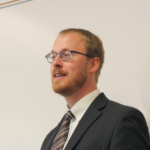Origen of Alexandria lived from c. 180 AD – c. 254 AD and was one of the most influential theologians of the Patristic era and beyond. His speculative prowess of spiritual exegesis, his dogmatic work On First Principles, his powerful apologetic work Against Celsus, and his deep desire to be a man of the Church ensured him a lasting influence. In all the disciplines of theology, he was concerned with finding the divine Logos within all of His expressions: Scripture, creation, tradition, and the Church. Although he was declared a heretic in 553 AD, 300 years after his death, there is no doubt that he held properly orthodox views besides the more experimental and explicitly hypothetical teachings he offered for consideration while probing the depths of philosophy and theology. To expect him to be perfectly orthodox at a time when the finer aspects of Church teaching had not been defined yet in ecumenical councils is a tragically anachronistic demand. This seminar is an overview and study the most influential works of Origen (On First Principles, Commentary on the Gospel of John, Against Celsus, On Prayer, Homilies on the Song of Songs, and others) that have been transmitted with the goal to gain insight into this deeply original and lively thinker of the early Church and his profound influence on and relevance for the Church today. Areas of concentration will include: exegesis, dogmatics, spirituality, ecclesiology and apologetics.
Selected Texts
Henri de Lubac, History and Spirit: The Understanding of Scripture According to Origen.
Origen, On First Principles: A Reader’s Edition.
Origen, Treatise on the Passover; and, Dialogue of Origen with Heraclides and His Fellow Bishops on the Father, the Son, and the Soul.
Faculty

Jonathan Bieler
Assistant Professor of Patrology and Systematic Theology
Dr. Bieler received his doctoral degree in theology at the University of Zürich (2017), with a dissertation in Patristics on the coherence of Maximus the Confessor’s thought, which is published by Brill (2019). He taught in the theological faculty at the University of Zürich and assisted the chair of Patristics with teaching and research. In his work, he strives to combine the usage of historical-critical methods with faithfulness to the Church’s living tradition.
Learn More